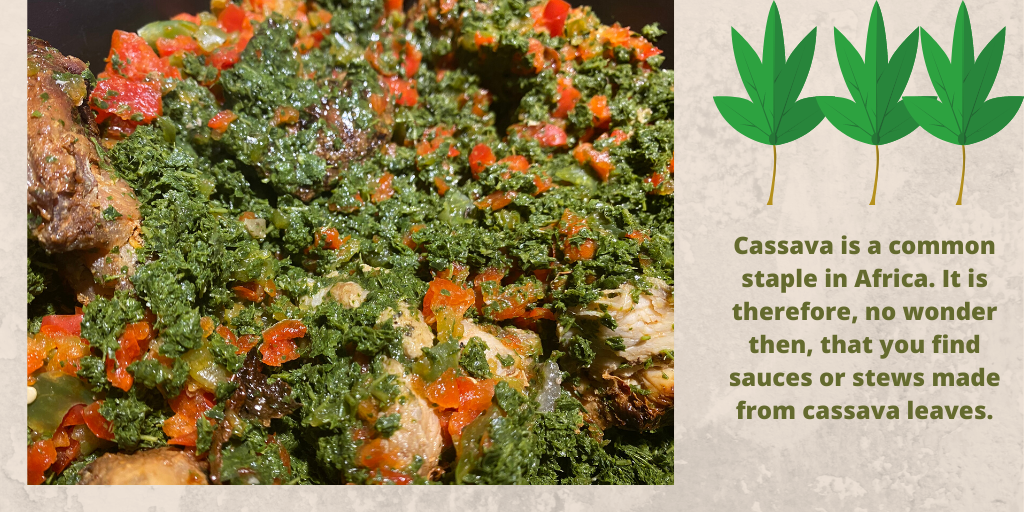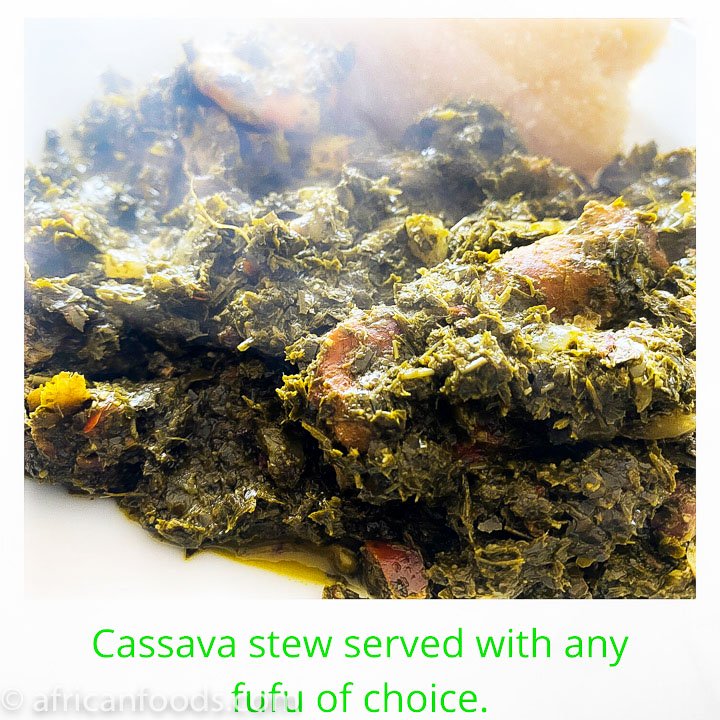Pondu, Cassava Leaves Stew
If you are looking for something new to try, let us take a trip to the Congo and check out this vegetable suace, using simple ingredients. Pondu is something to try!
Pondu is cassava leaf stew. Cassava is a common staple across most of Africa. It is no wonder then, that the leaves could form the base of this sauce and many others.
Cassava leaves is commonly used in the community I grew up in. So, this is entirely new to me until recently. However it reminded me of Afang soup which is popular in Nigeria. Pondu is cooked slightly differently, but with similar ingredients.
What Is Pondu
Pondu is one of Congolese favourite dishes made from cassava leaves, peppers, fish or meat, palm oil and cooked to a gentle simmer until vegetables are tender.
What Does Cassava Leaves Taste Like?
They have a mild taste not spicy both tough like kale and may take longer to cook until tender, than most other leaves.
How To Cook Cassave leaves?
The main ingredient, fresh cassava leaves may not be available outside of Africa. For this recipe, i will be using the frozen one. In my local African food shop, they come in about 1kg bag. I used half of the bag.
Cassava leaf soup
|
Servings: 6-8 |
Prep Time: 20min |
Cooking Time: 45min- 1hour |
Ingredients
- 5oog frozen cassava leaves
- 1 cup of palm oil
- 2 bell peppers, finely chopped
- 1 bunch of spring onion, chopped
- 2-3 garlic cloves, minced
- 6-8 pieces of grilled chicken thighs
- 1 large smoked fish, deboned and thoroughly cleaned
- 500ml chicken stock
- salt to taste
Method
Thaw the frozen cassava and rinse thoroughly in a colander under running water. Squeeze out excess liquid. Transfer in a pot.
Pour in the stock and add rest of ingredients to the pot.
Bring everything to a boil under medium heat cooking for about fifteen minutes then, reduce heat to simmer for the rest of the time until vegetables are tender.
Adjust salt to taste and serve with fufu, rice, yam, potato or plantain.
Store leftover in the fridge and consume within five days.
Recipe provided by www.AfricanFoods.co.uk
Are Cassava Leaves Safe To Eat?
Raw cassava roots, tubers and leaves contain cyanide and large amounts of this are poisonous and could be fatal.
However, when thoroughly cooked, they are safe. So, never eat them raw.
The idea is similar to eating raw meat versus cook. Raw meat could cause food poisoning however when meat is cooked, they generally safe for most people.
Want regular updates on African cuisines and food recipes? What about unique health information about these foods - what to eat and avoid to keep healthy from the list of African recipes available?
Fill in the form below to subscribe to our Newsletter - AfricanFoods Weekly?
Worried about spamming? We are too. We will never ever give or pass on your information to anyone else. We will only use your email address to send you your copy of our weekly newsletter. We do have a zero tolerance to spam. We subscribe to a very strict policy on the handling and use of information we gather on this site! We also get paid for affiliate links on this site. See our privacy policy for further details.
Follow us on social media:
Get Our Weekly Newsletter. Subscribe Today. It's FREE.
Subscribe to African Foods Weekly
Get African food recipes, cooking tips, and healthy eating info delivered to your inbox every week. Simply fill in your email below and click SUBSCRIBE .
(Your information will not be shared)












New! Comments
Have your say about what you just read! Leave me a comment in the box below.